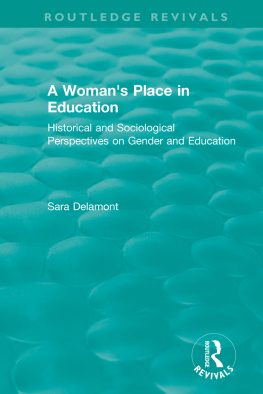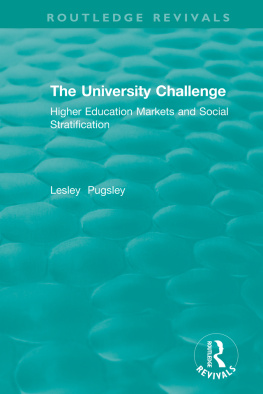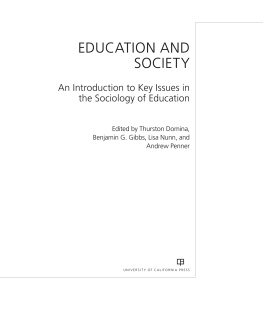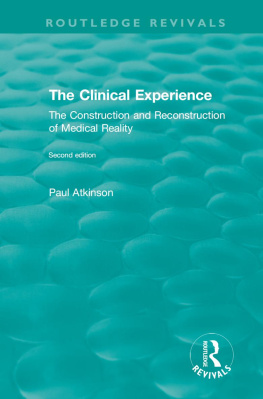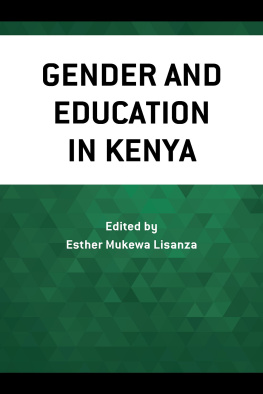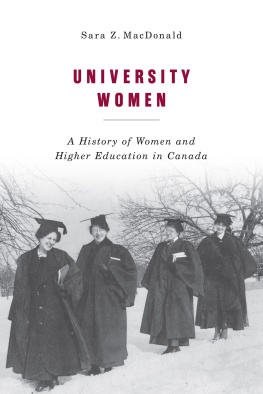Routledge Revivals
A Woman's Place in Education
Published in 1996, this volume includes the presidential address of Sara Delamont, the first female President of Bera written and presented in 1984. The book also includes a selection of papers on gender and education. Topics covered include: female pupils experiences, resistance to sex equality messages, science education for girls and women in universities. Providing historical and sociological perspectives on gender and education this book will interest sociologists, anthropologists, and those in the field of education.
This book was originally published as part of the Cardiff Papers in Qualitative Research series edited by Paul Atkinson, Sara Delamont and Amanda Coffey. The series publishes original sociological research that reflects the tradition of qualitative and ethnographic inquiry developed at Cardiff. The series includes monographs reporting on empirical research, edited collections focussing on particular themes, and texts discussing methodological developments and issues.
A Woman's Place in Education
Historical and Sociological Perspectives on Gender and Education
Sara Delamont
First published in 1996
by Ashgate Publishing Ltd
This edition first published in 2018 by Routledge
2 Park Square, Milton Park, Abingdon, Oxon, OX14 4RN
and by Routledge
711 Third Avenue, New York, NY 10017
Routledge is an imprint of the Taylor & Francis Group, an informa business
1996 Sara Delamont
All rights reserved. No part of this book may be reprinted or reproduced or utilised in any form or by any electronic, mechanical, or other means, now known or hereafter invented, including photocopying and recording, or in any information storage or retrieval system, without permission in writing from the publishers.
Publisher's Note
The publisher has gone to great lengths to ensure the quality of this reprint but points out that some imperfections in the original copies may be apparent.
Disclaimer
The publisher has made every effort to trace copyright holders and welcomes correspondence from those they have been unable to contact.
A Library of Congress record exists under LCCN: 95080521
ISBN 13: 978-0-8153-8537-0 (hbk)
ISBN 13: 978-1-351-20147-6 (ebk)
A Woman's Place in Education
Historical and sociological perspectives on gender and education
SARA DELAMONT
Avebury
Aldershot Brookfield USA Hong Kong Singapore Sydney
Sara Delamont 1996
All rights reserved. No part of this publication may be reproduced, stored in a retrieval system, or transmitted in any form or by any means, electronic, mechanical, photocopying, recording or otherwise without the prior permission of the publisher.
Published by
Avebury
Ashgate Publishing Limited
Gower House
Croft Road
Aldershot
Hants GU11 3HR
England
Ashgate Publishing Company
Old Post Road
Brookfield
Vermont 05036
USA
British Library Cataloguing in Publication Data
Delamont, Sara
Woman's Place in Education: Historical
and Sociological Perspectives on Gender
and Education. - (Cardiff Papers in
Qualitative Research)
I. Title II. Series
376
ISBN 1 85628 583 9
Library of Congress Catalog Card Number: 95-80521
The research reported in these papers was supported by the ESRC, SCRE, and the Welsh Education Office.
All the opinions expressed are entirely my own. Lesley Pugsleyey read the manuscript and worked extensively on the bibliography. Elizabeth Renton typed the original drafts, Jackie Swift prepared the final, camera ready version.
Paul Atkinson commented on many of these pieces at some stage, and made invaluable comments.
Preface
This introductory essay is based on two public lectures given in the mid-1980s. In 1984 I was the President of the British Educational Research Assocation, and my presidential address was called 'A Woman's Place in Education'. In 1985 I gave an invited lecture called 'Fighting Familiarity: Focusing on Gender as a Strategy and a Tactic in Qualitative Research' to a summer school on qualitative methods at Warwick University. This chapter combines the central features of these two lectures.
In 1887 a book was published called Forbidden Fruit for Young Men. It consisted of questions put by men on relations between the sexes answered by a doctor. One query was as follows:
Should the girl who wishes to fulfil her maternal duties avoid the influence of education? And should the educated woman remain celibate?
The expert answered firmly YES
Girls who are natural, and would like to be (well) married, would do well to avoid education, remembering that the personal advantage to the highly educated woman impairs her usefulness as a mother. Those who overtax their vital energies by an intellectual strain likely to produce ill effects on their offspring, ought to accept a voluntary celibacy. They are self-made invalids and must accept the penalties of the position.
(Macdonald, 1981:16)
This idea did not die with Queen Victoria. In 1920 a woman doctor, Arabella Kenealy wrote that:
The woman of average brain attains the intellectual standards of the man of average brain only at the cost of her health, of her emotions, or of her morale.
(p. 155)
Kenealy argued that the girls' secondary schools established since the 1870's were producing in 1920, girls who had lost "every womanly characteristic", and who had lapsed "to the biological grade not of cultured, but of rough working men". Kenealy believed that schools like Wycombe Abbey, St.Leonards and Bedford High School for Girls were making girls more masculine in physique, so they became "more like colts or smaller bullocks!" They also became masculine in their mental processes, so that:
...male mental proclivities develop: obsessions to wear trousers, to smoke, to stride, to kill.
By despising cookery, needlework and child care and excluding them from the curriculum, the state schools for girls had;
...engendered the race of stunted, precocious, bold-eyed, cigarette-smoking, free-living working girls who fill our streets, many tricked out like cocottes, eyes roving after men, impudence upon their tongues, their poor brains vitiated by vulgar rag-tunes and cinema scenes of vice and suggestiveness.
Kenealy blamed the feminist movement for the schooling of girls, and for leading Britain (and the whole Anglo-Saxon race) into Prussianism, socialism, Bolshevism and Anarchism! (We should be so lucky!)
It is easy to laugh at such wild statements, and ridicule such bizarre views. Anyone can be wise after the event. In this chapter I propose to make four points about woman's place in education which will lead us to see Arabella Kenealy in a different light. These four points are:
- The views held by experts (e.g. doctors, clergyman, judges) on woman's place in education during the period 1850-1945 now seem to us quaint, illogical and even lunatic,
- But, it is very easy for us to look back and mock both the opponents of womens' education (and their supporters) while ignoring the facts that our views today may well be founded on equally shaky, unexamined premises.

